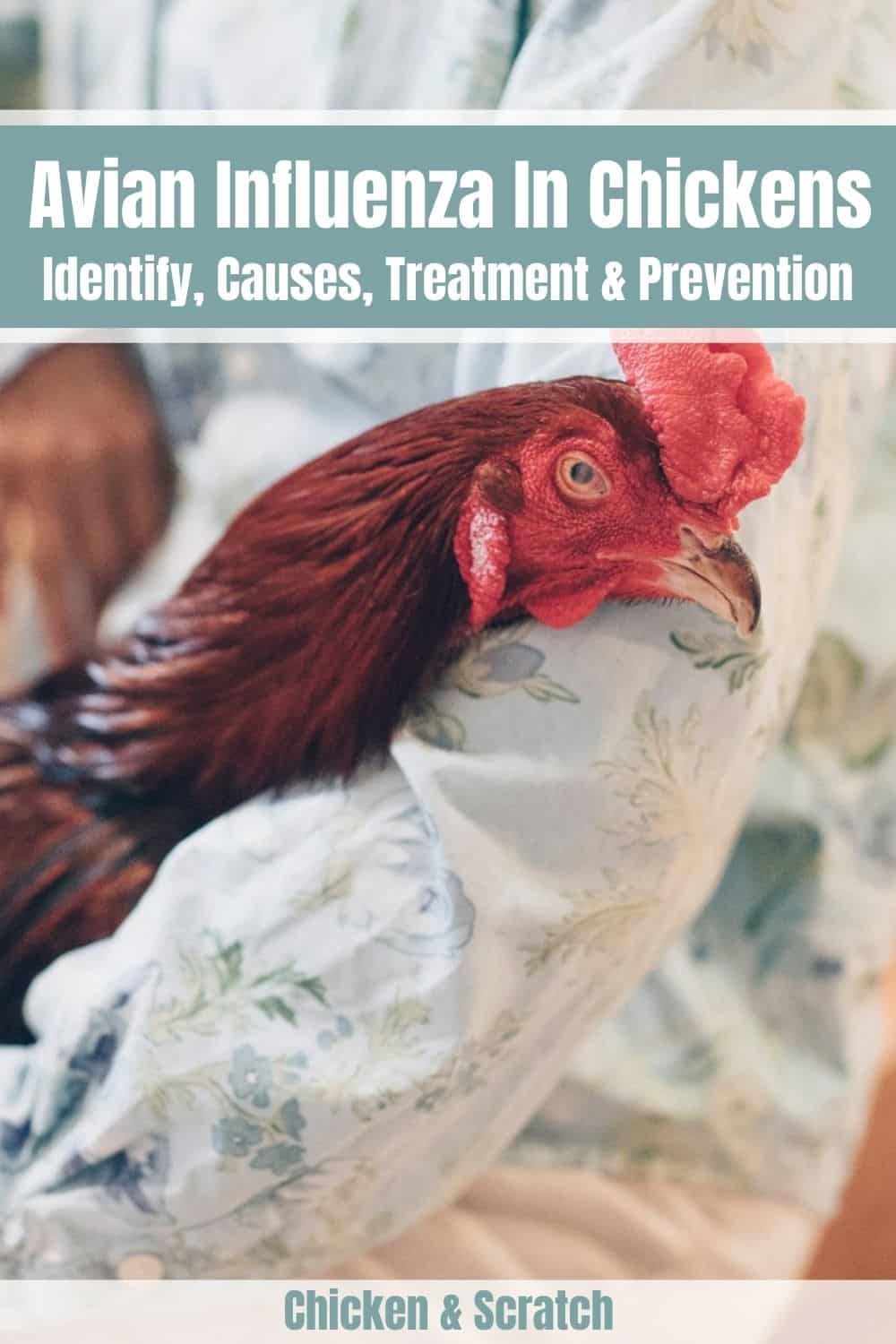Also called “Bird flu,” Avian Influenza is a flu caused by a virus naturally found in birds. It was first discovered in 1878 as the Fowl Plague before it was named Avian Influenza in 1995. No bird species is exempt from getting this flu, and it takes less than 72 hours to incubate once a bird is affected. Below are the signs, causes, and preventive measures of Avian Influenza.
This article will cover
- How To Identify Avian Influenza In Chickens
- Causes And Risk Factors Of Avian Influenza
- Effects and Treatment Of Avian Influenza
- 4 Ways To Prevent Avian Influenza
How To Identify Avian Influenza In Chickens
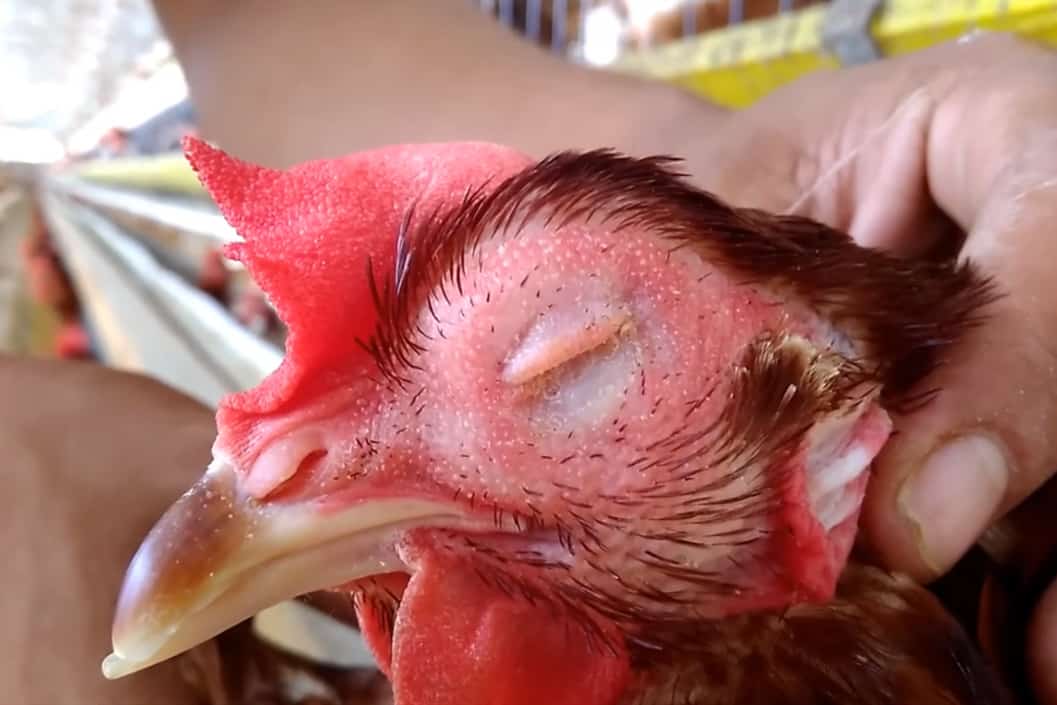
Even though Avian Influenza also affects humans, most of the virus strains are common to poultry. Spotting the flu in your chickens might be difficult because infected chickens can look so healthy that you’d believe nothing is wrong with them.
Besides, you might not see any symptoms in the first few days of infection. However, it takes less than 3 days for the flu to incubate in your chickens and less than 15 days to spread through your flock. That spells quick death for them. Below are some signs of avian influenza.
Reduced egg production
If your chickens are infected by bird flu, one of the ways you’d know is a decrease in the number of eggs they lay. As such, you should know the number of eggs your laying hens can lay under normal circumstances and always check to see if they meet that target or not.
However, not only Avian Influenza reduce egg production; other factors such as old age, poor nutrition, and other poultry diseases can be at fault too.
Swollen head
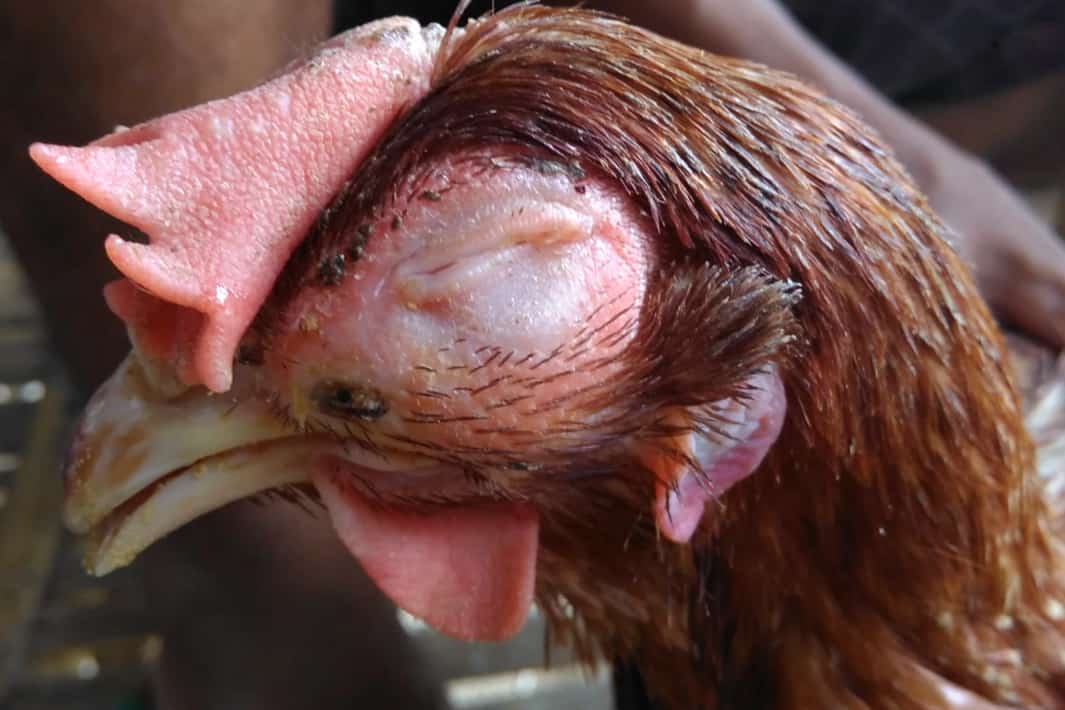
Another symptom of Avian Influenza is swollen head in your chickens, also called edema. Here, the combs and wattles are larger than their usual sizes, with affected chickens in some discomfort. The swellings can be in a place or multiple places. This condition usually occurs in hens and other female birds.
Reduced appetite
Naturally, chickens love to eat until they are satisfied. Even when satisfied, some would still peck at something. Therefore, only an unhealthy chicken will shy away from food or not eat as much as necessary. You must take action once your flock starts behaving like this.
Even though all of the above are signs of bird flu, they can also serve as symptoms of other diseases. As such, only a laboratory test can confirm what is truly wrong with your flock.
Laboratory test
Since it’s pretty challenging to identify if your chickens have Avian Influenza, especially in the early stages, conducting a laboratory test for your chickens is the surest way to know if your birds have the virus or not. To do this, take your flock to a local testing lab for animals. Also, you have to take the test as a routine to prevent complications in the future.
Causes And Risk Factors Of Avian Influenza
Different types of the same virus cause the various strains of bird flu. The most common types are H5N1 and H7N9, which also affect humans. There are different virus types because the proteins found on each are different and are used to name them.
Also, these types have either mild or severe effects and constantly mutate. For instance, a virus strain with low pathogenicity won’t cause much distress to your chickens. With appropriate and timely care, your flock can still survive it. However, strains with high pathogenicity can kill your flock within hours.
You’ll mostly find bird flu in wild birds. However, these birds usually have a natural resistance to the disease and are unlikely to die. If your flock comes in contact with these wild birds or the waste from their bodies, they’ll be infected too.
Most wild birds don’t settle in one place, and you can find their droppings all over their temporary residences. The virus enters your chickens’ bodies through body openings such as the mouth, eyes, nose, etc.
There are several risk factors of Avian influenza. Below are some of them.
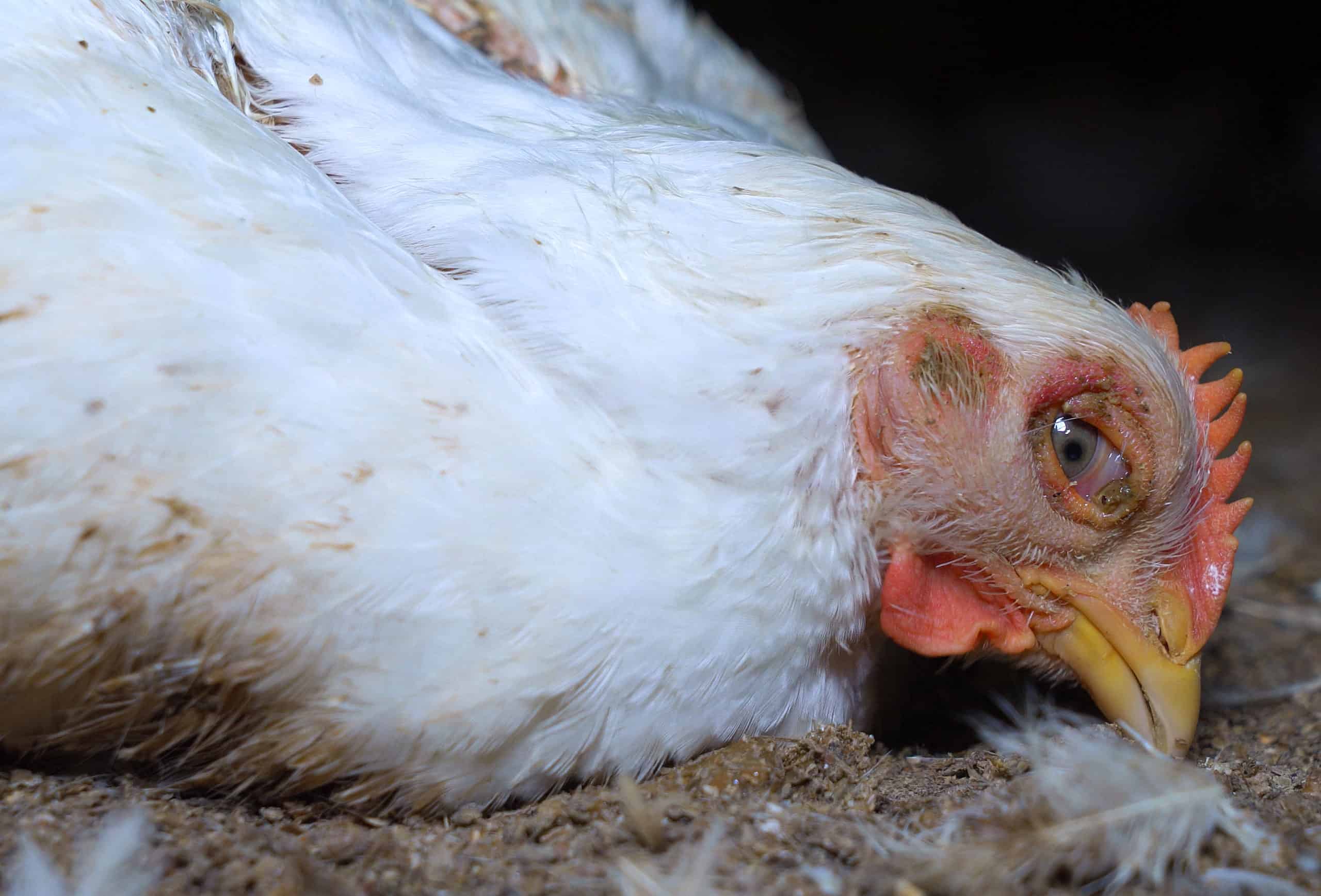
Unclean environment
While a virus primarily causes Avian Influenza, an unclean environment facilitates its thriving. You shouldn’t raise your chickens in unsanitary conditions if you want to protect them from bird flu. Even though wild birds are migratory, you’ll find their droppings everywhere they settle.
These droppings contain the virus and can sometimes mix with water, food, etc. If your flock drinks the water from an infected water source or touch contaminated surfaces, they’ll get infected too. Your property shouldn’t be a settling space for these wild birds. Regularly disinfect your chicken coop as well and examine new chickens well before you introduce them into your flock. [How to Clean a Chicken Coop – When, Why and How Often]
Infected birds
Avian Influenza affects humans too. It usually causes problems such as respiratory problems, eye issues, etc. You need to protect yourself when dealing with infected chickens. Minimize direct contact with them.
Ensure both eggs and meat are cooked properly before eating them, especially if both products are gotten from open-air markets. To avoid getting infected, you should produce your meat and eggs yourself.
Effects and Treatment Of Avian Influenza
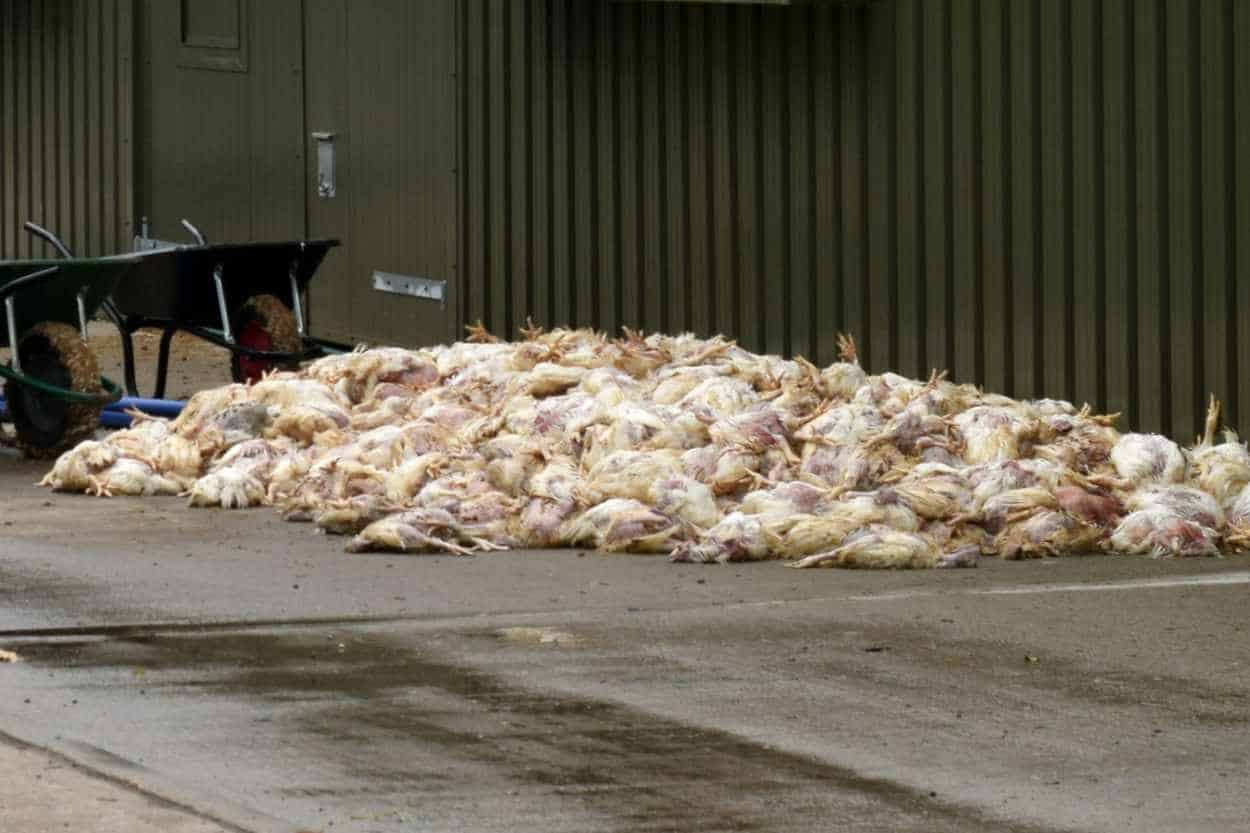
The complications from Avian Influenza are severe. In most cases, the infected chickens die excruciatingly. Here are some of the complications.
Respiratory issues
Chickens infected by the virus find it difficult to breathe. Once the virus gets into the body, one of the first things is to seize the respiratory functions. Therefore, it’s not uncommon to find infected birds struggling to breathe among other respiratory issues. This is followed by the lungs collapsing, which immediately spells death for the affected chicken.
Eye irritation
Eye color depends on age and breed, but there are some common standards. For instance, a healthy chickens’ eyes should be clear with a round, black pupil. But if your chicken is infected with Avian Influenza, the eye is irritated. There might be some swelling as well. Whatever the form of change is, it’s visible. The infected chickens might even find it difficult to see correctly.
Seizures
Chickens can suddenly become epileptic when infected with bird flu too. Some mutations in the body often cause seizures. This isn’t surprising as the virus responsible for the diseases mutate as well too. However, not only Avian Influenza causes chickens to have attacks. Other factors like accidents, hormonal imbalances, heat stroke, etc., can also cause seizures.
Treatment
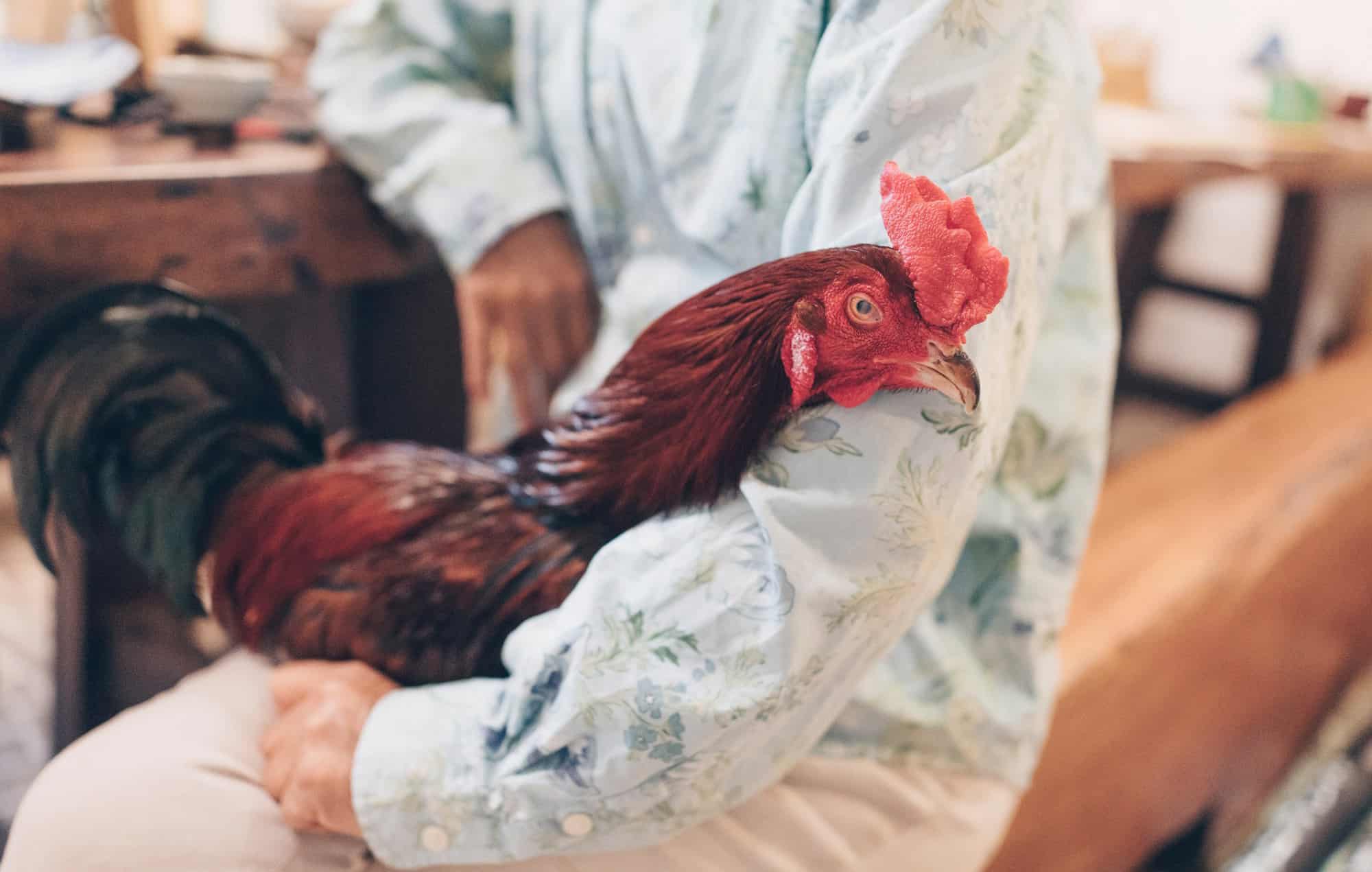
As of now, there are no drugs that cure bird flu in chickens. Therefore, the best way to treat chickens suffering from the flu and prevent the spread is to kill them and dispose of their remains properly.
If one chicken in your flock gets affected, the chances are that the rest are equally affected too. A laboratory test would most likely prove that. In this case, what remains is to cull the entire flock and start raising a new one.
Ensure you disinfect the environment before bringing in a new flock and don’t restock immediately after the deaths. However, you can get your flock vaccinated against Avian Influenza to increase their chances of survival if they get infected.
Also, ensure to include a professional in every step you take when dealing with infected birds. Without taking the necessary steps, the infected birds, either dead or alive, can spread the plague to both human and animal members of the environment.
4 Ways To Prevent Avian Influenza
You don’t have to wait for Avian Influenza to strike your chickens before you take action. Below are some of the ways you can protect your flock from it.
Regular disinfection
Make it a routine to always disinfect every material that comes in contact with your birds. For instance, food and water containers, beddings, coops/pens, etc., should be disinfected with chemicals that aren’t dangerous to your chickens. Doing this will eliminate any safe space a virus can find in the environment you raise your chickens.
Curtail the spread
Once you can identify the signs in some birds in your flock, don’t wait for the whole flock to get infected before separating the infected bird from the uninfected ones. Due to the pathogenicity of the virus strain, the symptoms can either be immediate or happen at a much later date.
Destroy every infected bird, even if it means the whole flock. Also, conduct laboratory tests for the rest of the flock who aren’t showing symptoms before deciding they’re uninfected.
Test all new chickens
Another way to prevent Avian Influenza is to test every chicken before you add them to your flock. Most times, chickens brought into your locality might have been infected, but with proper tests, you’d know. Watch the new chickens closely for 4-6 weeks.
If there’s nothing wrong with them, you can introduce them to your flock. In addition, only buy chickens from reliable places. Stay updated on laws about the shipment of chickens into your locality too. Check the background of the place the chickens are brought from before you accept them.
Limit foraging
While foraging helps keep your chickens in the best state of health, it shouldn’t be too much. Don’t allow your chickens to forage into places you can’t supervise. They may come in contact with affected wild birds or surfaces already contaminated by these birds.
You can make an enclosure big enough for your chickens to forage without crowding, but small enough for you to supervise closely. Provide everything your birds may need in the enclosure so they won’t be tempted to go outside.
Summary
Avian influenza is a disease that naturally occurs in birds. It is caused by a virus that has different strains and can mutate frequently. The best way to treat Avian Influenza is to prevent it, as death is often the only option if your chickens get infected. You can also vaccinate your chickens against it too.
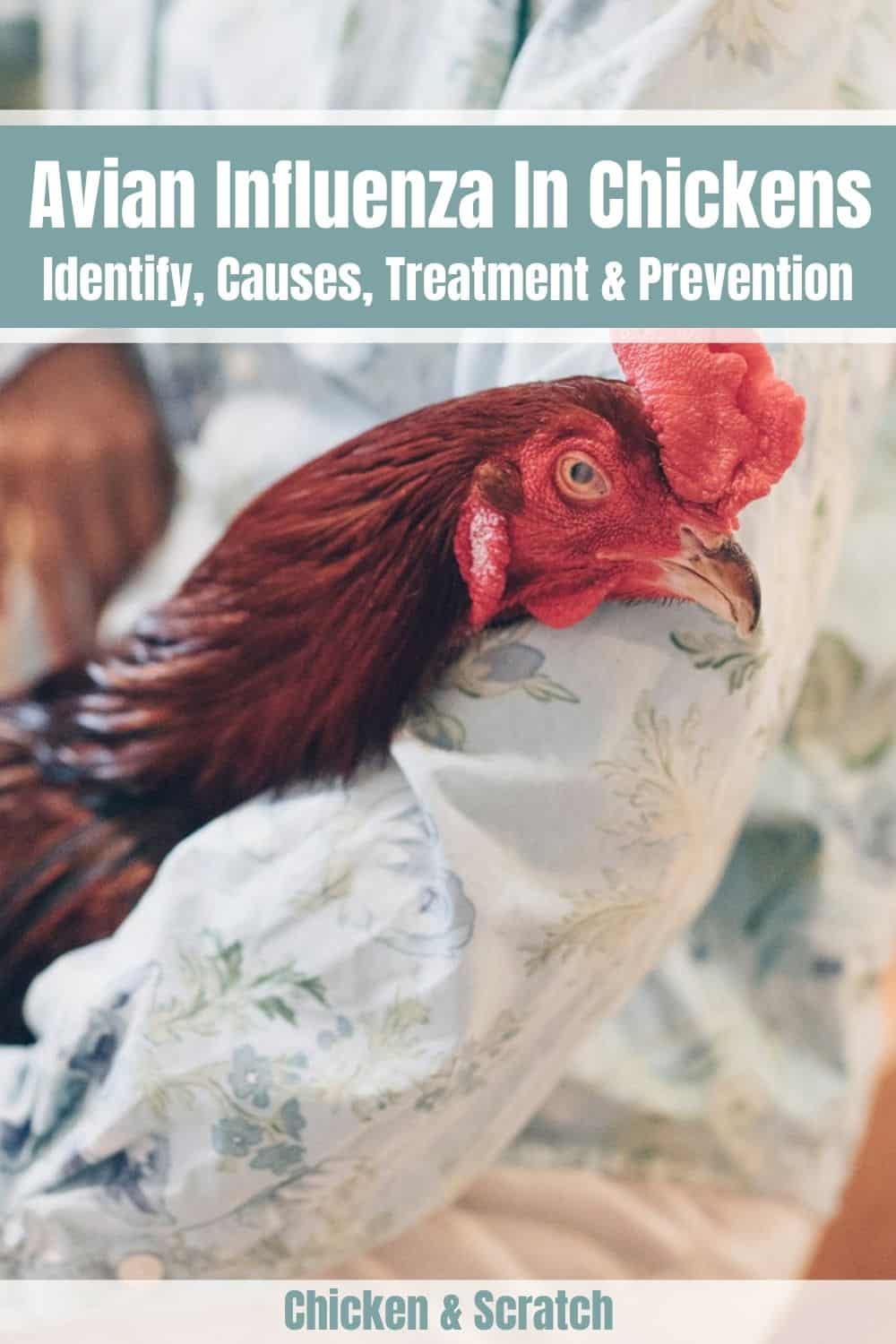

Joseph Hudson has been raising chickens for over 15 years. In 2018, he completed the Agriculture & Natural Resources program at Mt. San Antonio College. He currently raises over 1400 chickens on his 7.5-hectare farm. He keeps sharing his experience on raising healthy and happy chickens on Chicken Scratch The Foundry.
